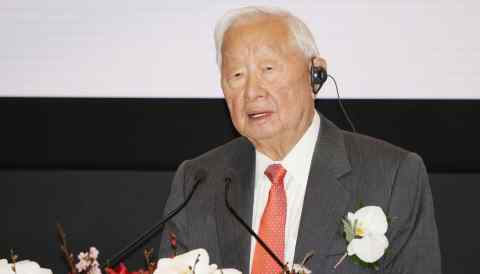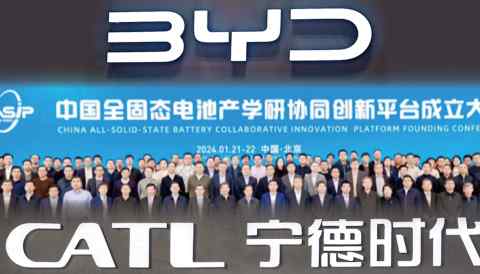
Hi, this is Kenji.
In Hong Kong, where I live, we are hearing a lot about Japan these days, especially about how the benchmark stock average reached a record high for the first time in more than 34 years last week.
While stock markets in mainland China and Hong Kong remain stagnant, seminars and events on Japanese equities here are catering to the renewed appetite for this long-neglected asset class. On Tuesday, I met two Tokyo-based portfolio managers on their way home from Singapore. They were in the city for just 36 hours to talk to local clients about how to jump on the Japan equities bandwagon. One of them said he had recently traveled as far as Latin America to advise customers on the same topic.
But while Japan seems to be back for investors, it is not quite there in tech. Just two days after the Nikkei Average broke its 1989 record high, Taiwan Semiconductor Manufacturing Co. opened its first Japan factory in Kumamoto. Tokyo is backing the project with hefty subsidies in hopes of reviving the country's once glorious semiconductor industry. Back in 1989, Japan's NEC, Toshiba, and Hitachi were the top three chipmakers in the world, while the country's DRAM production met half of the global demand. Last year, none of the top 10 chipmakers by revenue were Japanese.
And while Tokyo stock prices have reached new heights, there are no Japanese companies in the global top 30 by market capitalization. At the end of 1989, there were 21 in that list -- including all of the top five.
Today, the most valuable company in Asia is TSMC (if we do not include Saudi Arabia as part of the region). It ranks around 15th in the world, far ahead of Japan's market leader, Toyota Motor. The Japanese government is expected to provide a total of 1.2 trillion yen ($8 billion) in taxpayers' money to support TSMC's expansion in the country, including a planned second factory, as no local names are able to provide the chips that Toyota, Sony and other Japanese companies need.
Silicon Island
The opening ceremony for TSMC's first factory in Japan's southwestern prefecture of Kumamoto on Saturday was attended by numerous industry figures, government officials and dozens of journalists, Nikkei Asia's Cheng Ting-Fang and Ryohtaroh Satoh among them. One of the highlights of the event was a speech by TSMC founder Morris Chang, who envisioned a "chip renaissance" in Japan as the country tries to regain its position as a semiconductor powerhouse.
Chang, a towering figure in the industry, said the Kumamoto factory "will improve supply resiliency of chips for Japan and for the world. ... It will also, I believe, I hope, start a renaissance of semiconductors."
The industry veteran's Japan connection goes back to at least 1968, when he was vice president at Texas Instruments, preparing to start a joint venture in the country with Sony. Chang still remembers his first encounter with Akio Morita, Sony's legendary founder, who then told Chang: "You will be pleasantly surprised by the yield you will achieve in Japan."
TI eventually opened several chip plants in Japan, and, according to Chang, "Mr. Morita's prediction came true."
"We are waiting to see if we are pleasantly surprised by the yield this time," Chang said.
Prime Minister Fumio Kishida and the Japanese government are surely hoping for a repeat as well, as the country is making a big bet on TSMC to help revive its tech industry.
Hacking Inc.
China's use of private companies to hack an array of foreign governments and organizations as well as spy on its own citizens has come to light through a major data leak from one contractor.
The cache of documents includes screenshots, price tables and internal messages from the company known as I-Soon, and collectively reveals its inner workings as well as the services that the group provides to Chinese public security authorities.
Two people close to I-Soon confirmed the documents came from the company, Ryan McMorrow writes for the Financial Times.
The company's employees helped China retrieve material ranging from medical records at a Taiwanese hospital during the coronavirus pandemic to call records from Kazakh telecom carriers.
The cache also includes a record of customers and pricing for some of I-Soon's services. The public security bureau in the southern city of Haikou, for example, paid 220,000 yuan ($31,000) for "data from four email inboxes" in 2018.
The eastern city of Taizhou paid 2.6 million yuan in 2021 for systems to track users of Telegram and X, then known as Twitter, and of other applications, while the central province of Hubei paid more than 1 million yuan for tools to attack Apple's iOS systems remotely.
Barcelona calling
The annual Mobile World Congress is going on in the Spanish city of Barcelona until Thursday, and Nikkei Asia's tech correspondents Cheng Ting-Fang and Lauly Li have been reporting daily from the event.
Among the big-name companies taking part is China's Honor, which launched AI smartphones and PCs using an industry-first "intent-base" interface technology that can anticipate users' needs.
The former Huawei unit aims to commercialize so-called semantic AI, which allows machines to interpret the meaning of text and search terms, in order to compete with rivals in the global market where the race to put AI features on devices has been heating up.
For Honor, a slowdown in the Chinese economy and the comeback of its former parent Huawei make it even more important to win over overseas business. So far, it has grown its share of overseas revenue to nearly 23% in 2023, from 9.8% in 2022, according to Canalys.
Wiki's worries
What worries Wikipedia co-founder Jimmy Wales about artificial intelligence isn't its impact on traffic or fundraising, but on information more broadly.
In an interview with Nikkei Asia's Cissy Zhou in Hong Kong, Wales said declines in journalism and the deterioration of the industry's business model could encourage the widespread use of AI to produce -- or even fabricate -- news stories, particularly at the local level. This, in turn, could hurt Wikipedia, which relies heavily on such content.
Misinformation is not a new problem for the online encyclopedia, whose editors try to counter it through tireless debate and cross-checking of facts. "Obviously, we will discover fake stories over some time, but I do worry about how to have a controlled ecosystem," he said.
On the other hand, AI could also serve as a tool in the fight against disinformation. AI models are "deeply flawed in terms of accuracy," he said, but there could be a way for the technology to assist editors, such as by giving suggestions or checking content. But at the end of the day, he added, "Anything that goes in Wikipedia, the responsibility is to humans to do that."
Suggested reads
1. Apple Vision Pro teardown: Japanese companies supply 40% of parts (Nikkei Asia)
2. Shein considers London listing if US IPO blocked over ties to China (FT)
3. White House moves to defend US ports from Chinese cyber threat (FT)
4. In EV revolution, resource-rich Global South hopes to turn cash-rich (Nikkei Asia)
5. Sequoia China founder Neil Shen took Singapore residency as US-China tensions rose (FT)
6. Once India's most valuable startup, Byju's staring at founder exit (Nikkei Asia)
7. Chinese cinema projector maker says electric vehicles have box office potential (FT)
8. 'Curly Tales' and 'BeerBiceps': Narendra Modi's BJP taps influencers ahead of India election (FT)
9. Sony aims for high note on music business with Bruce Springsteen catalog (Nikkei Asia)
10. Lenovo to ship first AI PC by midyear after double-digit profit drop (Nikkei Asia)
For more great stories like this delivered to your inbox every week, sign up to our #techAsia newsletter. Current subscribers, click here to update your newsletters preferences.






.jpg?width=240&height=137&fit=cover&gravity=faces&dpr=2&quality=medium&source=nar-cms)






